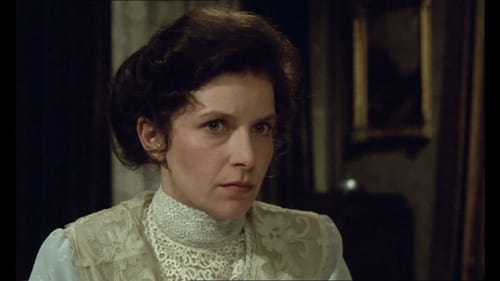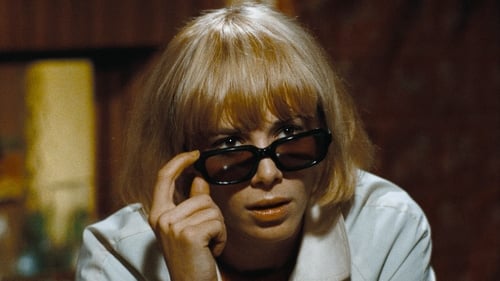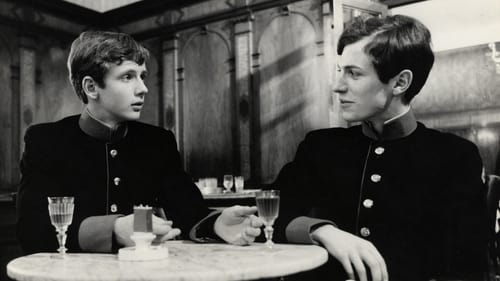Franz Rath
Birth : 1932-06-22, Eltville, Germany

Cinematography
Documentary about film director and actor Bernhard Wicki.

Director of Photography

Director of Photography
Ferdinand was abandoned as an infant by his parents in the forest. There he was found by a homosexual couple. Ludwig (called "Laila") and Harry adopted him. Ferdinand was strongly influenced by his adoptive parents. As a young man, he is an outsider due to his potty behavior.

Director of Photography
When Ruth's husband dies in New York, in 2000, she imposes strict Jewish mourning, which puzzles her children. A stranger comes to the house - Ruth's cousin - with a picture of Ruth, age 8, in Berlin, with a woman the cousin says helped Ruth escape. Hannah, Ruth's daughter engaged to a gentile, goes to Berlin to find the woman, Lena Fisher, now 90. Posing as a journalist investigating intermarriage, Hannah interviews Lena who tells the story of a week in 1943 when the Jewish husbands of Aryan women were detained in a building on Rosenstrasse. The women gather daily for word of their husbands. The film goes back and forth to tell Ruth and Lena's story. How will it affect Hannah?

Cinematography
Margarethe von Trotta's TV movie focuses on a woman whose life is destroyed by her addiction to alcohol. Angela Rinser is a happy mother of two children and quite successful in her job as bilingual secretary. The sudden death of her husband changes everything. She starts drinking and loses her job. Her children Felicitas and Max try to hush up their social decline for years because they don't want to live in a foster home.

Cinematography
East-Berlin, 1961, shortly after the erection of the Wall. Konrad, Sophie and three of their friends plan a daring escape to Western Germany. The attempt is successful, except for Konrad, who remains behind. From then on, and for the next 28 years, Konrad and Sophie will attempt to meet again, in spite of the Iron Curtain. Konrad, who has become a reputed Astrophysicist, tries to take advantage of scientific congresses outside Eastern Germany to arrange encounters with Sophie. But in a country where the political police, the Stasi, monitors the moves of all suspicious people (such as Konrad's sister Barbara and her husband Harald), preserving one's privacy, ideals and self-respect becomes an exhausting fight, even as the Eastern block begins its long process of disintegration.

Cinematography

Director of Photography
The passion of Christ, based on J. S. Bach's "Johannes-Passion". Its mix of music, speech, dancing and singing re-creates the style of antique Greek tragedies.

Director of Photography
The adaption of Arthur Schnitzler's brilliant study of the moral illusion and reality in a small town near Vienna at the end of the century. - After the famous radio adaption by Max Ophüls in 1954.

Director of Photography
In the Bavarian village of Schladerbach, the kobold Hatschipuh and his comrades live, of whose existence only Grandpa Reiter is aware. When the building constructor Lederer builds himself a new mansion, the subterranean settlement of the kobolds gets destroyed, and Grandpa Reiter sees himself forced to move them into his barn. But this abode as well is soon threatened: Since the farm is no longer profitable, Father Reiter plans to sell it…

Cinematography
A mother investigating her son's mysterious death finds much more than she bargained for. Casting director Alicia Browning (Remick) takes leave of her job in NYC to investigate what happened to her son Mark (Browning) in Germany. Her persistence uncovers perplexing details that lead to the discovery of some very unsettling, and dark personal memories!

Director of Photography
Polish socialist and Marxist Rosa Luxemburg works tirelessly in the service of revolution in early 20th century Poland and Germany. While Luxemburg campaigns for her beliefs, she is repeatedly imprisoned as she forms the Spartacist League offering a new vision for Germany.

Cinematography
Unsuccessfully trying to close old family wounds on a trip back to the Rhode Island home of her miserable childhood, a troubled young woman finds her new friendship with a neighbor has her stuck in another family drama.

Director of Photography
The third episodical film, after Deutschland im Herbst and Der Kandidat, in which notable German film makers reflect on the state of their country.

Cinematography
A woman suffering from terminal cancer determines to resolve several relationships in her life, especially with her daughter.

Director of Photography
Germany, 1968: The priest's daughters Marianna and Juliane both fight for changes in society, like making abortion legal. However their means are totally different: while Juliane's committed as a reporter, her sister joins a terroristic organization. After she's caught by the police and put into isolation jail, Juliane remains as her last connection to the rest of the world. Although she doesn't accept her sister's arguments and her boyfriend Wolfgang doesn't want her to, Juliane keeps on helping her sister. She begins to question the way her sister is treated.

Cinematography
Sisters Maria and Anna live together. Maria is a most proficient executive secretary, encouraging Anna to finish her studies and start a career. Anna broods, threatens to quit university, takes pills, and keeps a diary. When Maria's relationship with Maurice, the son of her boss, starts to lead to love, Anna takes a selfish and drastic step that plummets Maria into solitude. No longer able to connect with Maurice, Maria does establish a relationship with Miriam, a typist at her office who becomes a surrogate younger sister. But Maria is intrusive as well as helpful. Can this or any relationship work out for this talented woman whose past seems to choke her soul?

Director of Photography

Cinematography
Three people rob a bank to help a day care center that's in debt. Wolf is captured, Werner identified, police suspect Christa is the third. She and Werner ask Hans, a clergyman, to launder the money and give it to the kindergarten. He refuses. They try Ingrid, Christa's friend, who tries to help, but the school rejects the money. When tragedy strikes Werner, Hans helps Christa bolt to a collective in Portugal. Ingrid visits her; their relationship makes the collective nervous, so she returns to Germany and ceases living in hiding. The police are still looking for her and so is a witness to the robbery, Lena, a bank clerk. Lena's interest brings Christa's second awakening.

Cinematography
Television film.

Cinematography

Cinematography
An intriguing Hans Christian Anderson-style fairy tale aesthetic and voice over narration. Sudden Wealth is a despairing chronicle of a group of starving peasants who finally seize governmental wealth like a dysfunctional group of Robin Hood's Merry Men, only to be betrayed by their inescapable selves and systematically dehumanized (think bucolic Orwell) and reprogrammed by what we'll put under the rubric of God and Country.

Director of Photography
When a young woman accidentally kills her ex-lover during a fight, she decides to conceal the body. Unfortunately, however, our anti-hero is less than honorable and becomes involved with not one but both of the men she finds to help her with his disposal at a construction site. And that's just one of the problems this little case of murder and deception starts.

Cinematography
At an Austrian boys' boarding school in the early 1900s, shy, intelligent Törless observes the sadistic behavior of his fellow students, doing nothing to help a victimized classmate—until the torture goes too far. Adapted from Robert Musil's acclaimed novel, Young Törless launched the New German Cinema movement and garnered the 1966 Cannes Film Festival International Critics' Prize for first-time director Volker Schlöndorff.

















